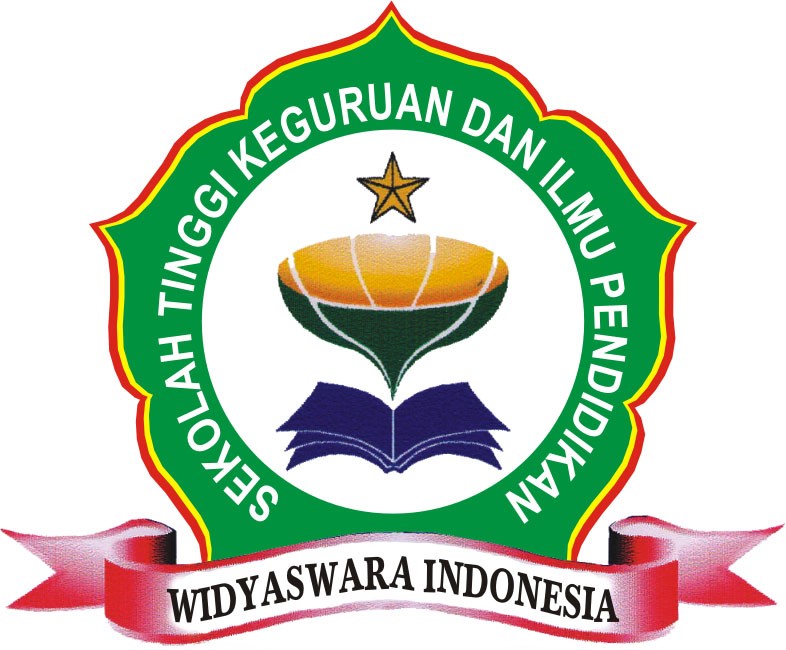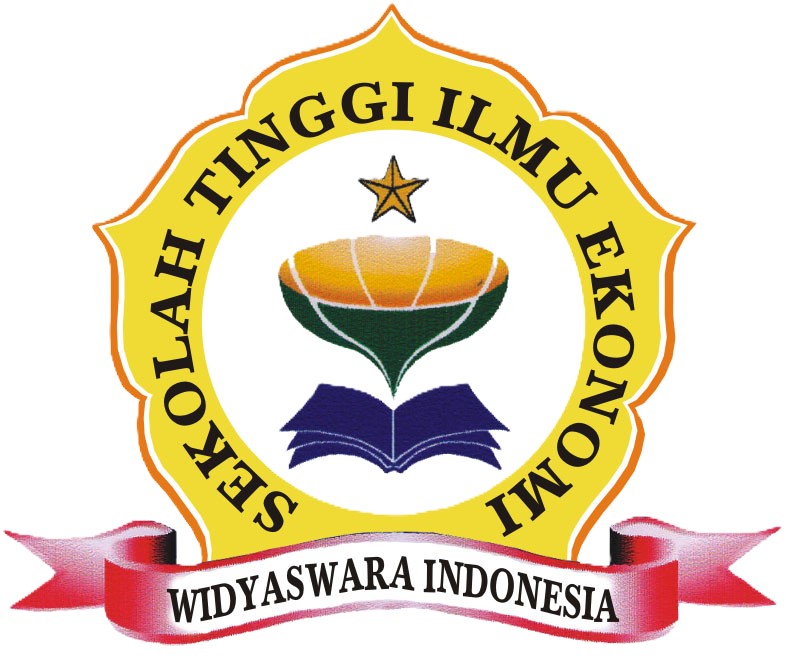Implementasi Research-Based Learning Untuk Mengoptimalkan Research Skills Mahasiswa
Main Article Content
Arum Sanjayanti
Mashudi Alamsyah
Maya Fadhillah
Keterampilan penelitian (research skills) merupakan kompetensi esensial bagi mahasiswa Biologi untuk memahami dan mengaplikasikan konsep dalam mata kuliah Anatomi Tumbuhan. Namun, mahasiswa sering mengalami kesulitan dalam merancang eksperimen, mengumpulkan data, menganalisis hasil, serta menyusun artikel ilmiah secara sistematis. Penelitian ini bertujuan untuk mengevaluasi efektivitas penerapan Research-Based Learning (RBL) dalam meningkatkan research skills mahasiswa, sekaligus memperdalam pemahaman konsep anatomi tumbuhan secara aplikatif. Jenis dan desain penelitian ini adalah quasi-eksperimen dengan desain non-equivalent control group. Desain ini dipilih untuk membandingkan hasil research skills mahasiswa antara kelas yang menerapkan Research-Based Learning (RBL) dan kelas yang menggunakan metode pembelajaran konvensional (lecture-based). Populasi penelitian diambil seluruh mahasiswa biologi yang mengambil mata kuliah Anatomi Tumbuhan, sampel diambil 2 kelas paralel dengan jumlah 40 mahasiswa secara purposive sampling. Instrumen penelitian berupa tugas praktik membuat artikel ilmiah yang diukur dengan skor numerik interval (1–5) dan lembar kuisioner yang diukur dengan skala Likert. Teknik analisis secara kuantitatif menggunakan Independent samples t-test dan uji N-gain untuk mengukur efektivitas penerapan Inquiry-Based Learning (RBL) dalam meningkatkan research skills mahasiswa. Implementasi Research-Based Learning (RBL) pada mata kuliah Anatomi Tumbuhan terbukti mampu mengoptimalkan keterampilan riset (research skills) mahasiswa. Hasil kuisioner setelah implementasi Research-Based Learning (RBL) mayoritas mahasiswa merasa puas dan terbantu dalam meningkatkan kemampuan research skills. Kesimpulannya, implementasi Research-Based Learning (RBL) menjadi strategi pembelajaran yang efektif untuk mengoptimalkan research skills mahasiswa Biologi, sekaligus membekali dengan kemampuan ilmiah yang aplikatif dan berorientasi pada penelitian.
Alnsour, M. M., Qouzah, L., Aljamani, S., Alamoush, R. A., & AL-Omiri, M. K. (2025). AI in education: enhancing learning potential and addressing ethical considerations among academic staff—a cross-sectional study at the University of Jordan. International Journal for Educational Integrity, 21(1), 16.
Altakhaineh, A. R. M., Qallab, I., Sabbah, A. S., & Dlu, A. G. A. (2025). Obstacles to the acquisition of research skills by Jordanian undergraduates from the perspective of academic staff and students. Social Sciences & Humanities Open, 12, 101719.
Ang, K. C., Afzal, F., & Crawford, L. H. (2021). Transitioning from passive to active learning: Preparing future project leaders. Project Leadership and Society, 2, 100016.
Antonio, R. P., & Prudente, M. S. (2024). Effects of Inquiry-Based Approaches on Students' Higher-Order Thinking Skills in Science: A Meta-Analysis. International Journal of Education in Mathematics, Science and Technology, 12(1), 251-281.
Appel, N. T., Tanveer, A., Brownell, S., & Blattman, J. N. (2024). Engaging undergraduate students in course-based research improved student learning of course material. CBE—Life Sciences Education, 23(3), ar41.
Arifin, Z., Saputro, S., & Kamari, A. (2025). The effect of inquiry-based learning on students’ critical thinking skills in science education: A systematic review and meta-analysis. Eurasia Journal of Mathematics, Science and Technology Education, 21(3), em2592.
Arifin, Z., Sukristyanto, A., Widodo, J., & Rahman, M. R. (2022). Implementation, outcomes, and effectiveness of research-based learning: a systematic literature review. International Journal of Education and Literacy Studies, 10(4), 153-163.
Basri, H., Indahwati, R., & Septiadi, D. D. (2025). Dampak Research-Based Learning Berbasis ChatGPT Terhadap Kemampuan Berpikir Kreatif dalam Menyelesaikan Masalah Mahasiswa. Bima Journal of Elementary Education, 3(1), 10-17.
Bektesh, E., Gollopeni, B., & Avdiu, E. (2023). The challenges of conducting online inquiry-based learning among tertiary level education. JOTSE, 13(1), 91-103.
Bin-Nashwan, S. A., Sadallah, M., & Bouteraa, M. (2023). Use of ChatGPT in academia: Academic integrity hangs in the balance. Technology in Society, 75, 102370.
Brew, A., & Saunders, C. (2020). Making sense of research-based learning in teacher education. Teaching and Teacher Education, 87, 102935.
Carroll, L. J., Reeping, D., Finelli, C. J., Prince, M. J., Husman, J., Graham, M., & Borrego, M. J. (2023). Barriers instructors experience in adopting active learning: Instrument development. Journal of Engineering Education, 112(4), 1079-1108.
Carroll, L. J., Reeping, D., Finelli, C. J., Prince, M. J., Husman, J., Graham, M., & Borrego, M. J. (2023). Barriers instructors experience in adopting active learning: Instrument development. Journal of Engineering Education, 112(4), 1079-1108.
Chaerunisa, Z. F., Ramli, M., & Sugiharto, B. (2023). Students' Inquiry Skills Progression Based on STEM Approach and Inquiry Lab. Journal of Biological Education Indonesia (Jurnal Pendidikan Biologi Indonesia), 9(2), 206-216.
Chen, G., Qin, Y., Wang, J., Li, S., Zeng, F., Deng, F., & Chen, Z. H. (2024). Stomatal evolution and plant adaptation to future climate. Plant, cell & environment, 47(9), 3299-3315.
Cotton, D. R., Cotton, P. A., & Shipway, J. R. (2024). Chatting and cheating: Ensuring academic integrity in the era of ChatGPT. Innovations in education and teaching international, 61(2), 228-239.
Dini, A., Rahmatan, H., & Nurmaliah, C. (2023). Application of the E-module combined with the Guided Inquiry Learning Model to Increase Student Motivation and Learning Outcomes on the Structure and Function of Plant Tissues. Jurnal Penelitian Pendidikan IPA, 9(6), 4768-4776.
Evangelista, E. D. L. (2025). Ensuring academic integrity in the age of ChatGPT: Rethinking exam design, assessment strategies, and ethical AI policies in higher education. Contemporary Educational Technology, 17(1), ep559.
Fitriani, H., Asy'ari, M., Zubaidah, S., Mahanal, S., & Samsuri, T. (2024). Enhancing Prospective Biology Teachers' Critical Analysis Skills: An Evaluation of Plant Anatomy and Development Textbook Effects. Journal of Turkish Science Education, 21(3), 533-548.
Gopalakrishnan, S., Vaithiyanathan, P., Elangovan, H., Kandasamy, S., & Ganesan, H. (2024). Readiness and perceived barriers for self-directed learning among medical students and faculty members: An observational study. Muller Journal of Medical Sciences and Research, 15(1), 22-27.
Leaton Gray, S., Edsall, D., & Parapadakis, D. (2025). AI-Based Digital Cheating At University, and the Case for New Ethical Pedagogies. Journal of Academic Ethics, 1-18.
Leonetti, C. T., Lindberg, H., Schwake, D. O., & Cotter, R. L. (2023). A call to assess the impacts of course-based undergraduate research experiences for career and technical education, allied health, and underrepresented students at community colleges. CBE—Life Sciences Education, 22(1), ar4.
Li, T., Ren, J., He, W., Wang, Y., Wen, X., Wang, X., & Fan, C. (2022). Anatomical structure interpretation of the effect of soil environment on fine root function. Frontiers in Plant Science, 13, 993127.
Mafugu, T., & Abel, S. (2022). Lecturer support in the implementation of a new curriculum during the COVID-19 pandemic. Interchange, 53(2), 243-259.
Maghfiroh, A. M., Astutik, S., Suratno, S., Kurnianto, F. A., & Nurdin, E. A. (2024). Pengaruh Model Pembelajaran Resource Based Learning (RBL) Berbasis Geoliteracy Terhadap Kemampuan Berpikir Spasial Siswa SMA. Majalah Pembelajaran Geografi, 7(1), 30-39.
Maghfiroh, A. M., Astutik, S., Suratno, S., Kurnianto, F. A., & Nurdin, E. A. (2024). Pengaruh Model Pembelajaran Resource Based Learning (RBL) Berbasis Geoliteracy Terhadap Kemampuan Berpikir Spasial Siswa SMA. Majalah Pembelajaran Geografi, 7(1), 30-39.
Molligan, J., & Pérez-López, E. (2024). Artificial intelligence in academia: opportunities, challenges, and ethical considerations. Biochemistry and Cell Biology, 103, 1-3.
Orton, G., Barnes, M. A., Syed, S. B., Reid, J. W., & Smith, A. C. (2025). Challenges for activating undergraduate research: a summary from the 2021 American Society for Microbiology Conference for Undergraduate Educators. Journal of Microbiology & Biology Education, 26(1), e00099-24.
Preston, J. C., Sinha, N. R., Torii, K. U., & Kellogg, E. A. (2022). Plant structure and function: Evolutionary origins and underlying mechanisms. Plant Physiology, 190(1), 1-4.
Rahayu, U., Anam, R. A. S., Sekarwinahyu, M., Sapriati, A., Sudarso, Y., & Sausan, I. (2024). Exploring of Inquiry Skills of Teacher Students: Biology, Physics, and Elementary School Teacher Education. European Journal of Education and Pedagogy, 5(1), 48-53.
Rehman, N., Huang, X., Mahmood, A., AlGerafi, M. A., & Javed, S. (2024). Project-based learning as a catalyst for 21st-Century skills and student engagement in the math classroom. Heliyon, 10(23).
Rizki, N. A. (2025). Penerapan Research-Based Learning (RBL) dalam Pengembangan Kompetensi Analisis Data Mahasiswa. Jurnal Inovasi Refleksi Profesi Guru, 2(1), 7-13.
Sanderson, A., & Mafugu, T. (2022). Lecturer Support in the Implementation of a New Curriculum During the COVID-19 Pandemic.
Sareen, S., & Mandal, S. (2024). Challenges of blended learning in higher education across global north-south: A systematic and integrative literature review. Social Sciences & Humanities Open, 10, 101011.
Sari, A. W., & Arta, D. J. (2025). Implementasi Deep Learning: Suatu Inovasi Pendidikan. WASPADA (Jurnal Wawasan Pengembangan Pendidikan), 13(1), 121-126.
Suriyah, P., Novianti, D. E., Noeruddin, A., & Mariana, D. (2024). based learning (RBL) based on digital learning environment (DLE) in the context of TPACK proficiency among prospective mathematics teachers viewed from creative thinking ability: A quasi-experimental study. In Proceeding International Conference on Digital Education and Social Science (Vol. 2, No. 1, pp. 354-370).
Susiani, T. S., Hidayah, R., & Salimi, M. (2019, June). Based Learning (RBL): How to improve problem solving skills?. In 3rd International Conference on Current Issues in Education (ICCIE 2018) (pp. 411-417). Atlantis Press.
Thomas, M. B., Muscat, A., Zuccolo, A., Luguetti, C. N., & Watt, A. (2025). Navigating Pedagogical Innovation in Higher Education: Education Academics' Experiences with Active and Inquiry-Based Learning in Intensive Teaching. Innovative Higher Education, 1-27.
Urdanivia Alarcon, D. A., Talavera-Mendoza, F., Rucano Paucar, F. H., Cayani Caceres, K. S., & Machaca Viza, R. (2023, May). Science and inquiry-based teaching and learning: a systematic review. In Frontiers in Education (Vol. 8, p. 1170487). Frontiers Media SA.
Vieno, K., Rogers, K. A., & Campbell, N. (2022). Broadening the definition of ‘research skills’ to enhance students’ competence across undergraduate and master’s programs. Education sciences, 12(10), 642.
Waked, A., Pilotti, M., & Abdelsalam, H. M. (2024). Differences that matter: inquiry-based learning approach to research writing instruction. Scientific Reports, 14(1), 27941.
Weigelt, A., Mommer, L., Andraczek, K., Iversen, C. M., Bergmann, J., Bruelheide, H., ... & McCormack, M. L. (2021). An integrated framework of plant form and function: the belowground perspective. New Phytologist, 232(1), 42-59.
Wessels, I., Rueß, J., Gess, C., Deicke, W., & Ziegler, M. (2021). Is research-based learning effective? Evidence from a pre–post analysis in the social sciences. Studies in Higher Education, 46(12), 2595-2609.
Wijnia, L., Noordzij, G., Arends, L. R., Rikers, R. M., & Loyens, S. M. (2024). The effects of problem-based, project-based, and case-based learning on students’ motivation: A meta-analysis. Educational Psychology Review, 36(1), 29.
Yanti, F. A., Ruyani, A., Yunitasari, Y., Thohir, M. A., & Kinasih, A. (2024). Implementation Process of Research Based Learning (RBL) for Doctoral Education Program Students: An Exploratory Case Study. Formatif: Jurnal Ilmiah Pendidikan MIPA, 14(1).
Zhang, M., Doi, L., Awua, J., Asare, H., & Stenhouse, R. (2023). Challenges and possible solutions for accessing scholarly literature among medical and nursing professionals and students in low-and-middle income countries: A systematic review. Nurse Education Today, 123, 105737.
Zhang, Q., Ying, Y., & Ping, J. (2022). Recent advances in plant nanoscience. Advanced Science, 9(2), 210341














